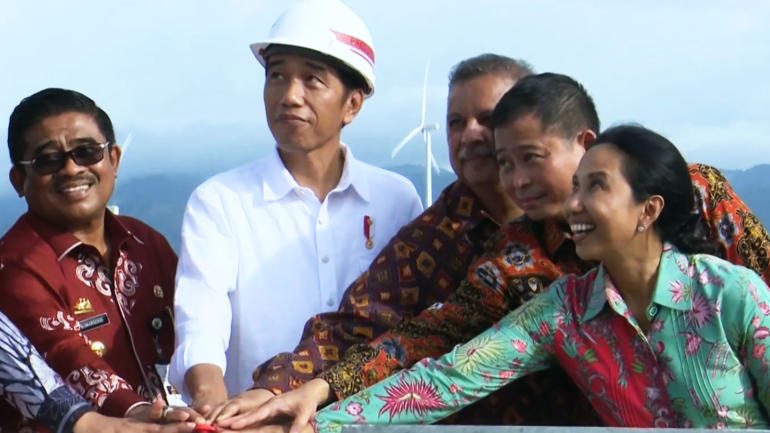Joko Widodo is set to begin his second term as Indonesia’s president. In his first term, he focused largely on building quality infrastructure to physically connect provinces across the archipelago. His second term will focus more on the importance of developing the country’s human resources. CGTN’s Silkina Ahluwalia has more from Jakarta.
In President Joko Widodo’s first term, Indonesia saw the benefits of having high-quality infrastructure, from toll roads to ports and power plants.
Entering his second term, Jokowi, as he is popularly known, will continue to commit to structural reforms to attract more investments and boost exports.
He has plans to improve Indonesia’s current account deficit and diversifying the country’s exports could improve its trade balance.
“Unfortunately during the 2004 to 2012, we had the economic commodity boom,” says senior economist Yose Rizal Damuri. “That means that Indonesia had a lot of incentives to boost commodities to become commodity export but now the commodity boom ends, now Indonesia just realised that we need to support our manufacturing export.”
This remains an integral part of Jokowi’s leadership. In his first term, he managed to build a strong relationship with Chinese investors, who are now funding in sectors such as manufacturing and e-commerce among others.
International relations expert Gilang Kembara tells CGTN:“With China’s economic capabilities now, not only concentrating within Asia but also worldwide, Jokowi sees Indonesia as part of that key link between China, Indonesia and the rest of the world to develop a global supply chain, not only to foster the economic well-being of both countries, but also the economic well-being of countries that are directly or indirectly impacted by the trade relationship or the economic relationship of the two countries.”
Indonesia has the potential to become an economic powerhouse and Jokowi is determined to help the country realise its huge potential. Jokowi also knows the importance of expanding Indonesia’s soft infrastructure plans. This includes supporting developments based on culture and human resources. This way, his government can strengthen connectivity and national unity through the Indonesian people.
 CGTN America
CGTN America
